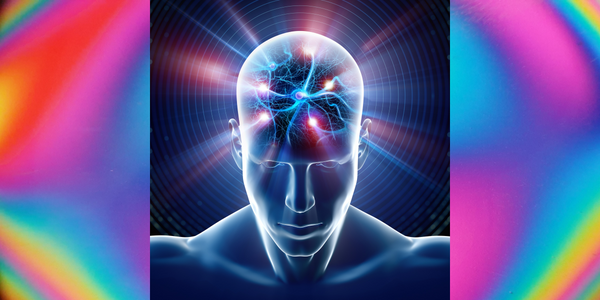 Psychedelic drugs have been utilized by various cultures for centuries to facilitate transcendental and varied spiritual or religious experiences. Psychedelics are also referred to as hallucinogens in that they affect a person’s mind by modifying perceptions, moods, and thought processes. Nowadays though, scientists and pharmacologists are investigating their potential for treating certain mental illnesses. Goodness knows we need something more effective. As I’ve chronicled for years now in this space, the antidepressant medications frequently employed in the management of depression generate quite paltry results, in that most antidepressant users eventually require augmentation to achieve desired results.
Psychedelic drugs have been utilized by various cultures for centuries to facilitate transcendental and varied spiritual or religious experiences. Psychedelics are also referred to as hallucinogens in that they affect a person’s mind by modifying perceptions, moods, and thought processes. Nowadays though, scientists and pharmacologists are investigating their potential for treating certain mental illnesses. Goodness knows we need something more effective. As I’ve chronicled for years now in this space, the antidepressant medications frequently employed in the management of depression generate quite paltry results, in that most antidepressant users eventually require augmentation to achieve desired results.
It’s important to note I’m referring to the medical use of psychedelic drugs administered in calculated dosages under the guidance and supervision of licensed medical professionals familiar with these agents – these same drugs used for recreational purposes can be quite dangerous.
Specific Psychedelics: Psilocybin; LSD; Ketamine; Esketamine
Psilocybin, often referred to as “magic mushrooms,” comes from certain mushrooms originating in the United States, Mexico, and South America. Psilocybin is currently the most researched psychedelic and is being studied as a potential treatment for depression, cancer-driven anxiety and certain manifestations of addiction.
LSD may decrease feelings of anxiety among those subject to life-threatening conditions. Follow-up research with 12 participants one-year post-treatment indicated that decreases in anxiety continued to last. (Note: A sample size of 12 is considered quite small bringing research reliability into question). Also, six trials totaling 536 subjects illustrated that a single controlled dose of LSD administered via treatment programs for alcohol use disorder led to a decrease in alcohol misuse.
Ketamine, known on the street as “special K,” has long been utilized as a surgical anesthetic in humans and especially animals. In recent years it has caught on as an “off-label” treatment for depression. Although not FDA-approved, some psychiatrists are offering ketamine for depression at specialized clinics across the country. Intranasal esketamine (Spravato) – administered in conjunction with traditional antidepressants – significantly ameliorated depressive symptoms as well as suicidal thinking among patients with major depressive disorder accompanied by elevated suicide risk. Currently, only esketamine (Spravato) is FDA-approved for treatment-resistant depression, administered as a nasal spray.
Psychedelic Side Effects
Common side effects include:
- Altered sense of time, often experienced as time passing slowly
- Anxiety, fear
- Rapid heart rate
- Increases in blood pressure
- Headaches
- Nausea
- Intense sensory manifestations, seeing bright colors
How Psychedelics Work
All psychedelics render an altered state of consciousness in users, and there is evidence that the brain becomes more pliable or flexible post psychedelic use. The most salient clinical term for this is neuroplasticity – whereby individual cells can sprout new connections and reorganize in response to different types of experiences. In other words, this is a neural response to learning, which psychedelics can enhance. Neuroplasticity then, means that our brains and minds are cast into a state whereby they are more readily influenced. According to some psychedelic users, drugs such as psilocybin and LSD, along with an anesthetic like ketamine, can augment the user’s neuroplasticity within mere hours of ingestion. Just go on an acid trip, and your brain will retool itself rendering you more creative and self-aware, as well as smarter.
Although being in a neuroplastic state enhances learning, it might also lock in traumatic memories or experiences if someone happens to have them while using a psychedelic. Thus, it’s worth noting the importance of having a qualified, clinically-trained trauma therapist on board to reevaluate and detoxify these memories or experiences, when one is caught up in the throes of the psychedelic experience.
My Take on the Future of Psychedelics as Mental Health Treatments
Undeniably, there has been a surge in psychedelic research in the last couple of years. This will likely continue to gain traction because mental health woes continue to grow in this country and we desperately need breakthrough treatments which serve as game-changers for historically difficult-to-treat disorders, as well as for other maladies where the contemporary crop of medication options are subpar.
In the best-case scenario, psychedelics can potentially be terrific for accelerating the treatment of depression – which we desperately need, thwart anxiety in the terminally ill, and attenuate the awful symptoms of PTSD. That’s sufficient for research efforts to continue. And if such efforts are proven to bear fruit, people should be informed that sufficient evidence supports psychedelics as a psychiatric treatment option.
Attribution Statement:
Joe Wegmann is a licensed pharmacist & clinical social worker has presented psychopharmacology seminars to over 10,000 healthcare professionals in 46 states, and maintains an active psychotherapy practice specializing in the treatment of depression and anxiety. He is the author of Psychopharmacology: Straight Talk on Mental Health Medications, published by PESI, Inc.
To learn more about Joe’s programs, visit the Programs section of this website or contribute a question for Joe to answer in a future article: joe@thepharmatherapist.com.